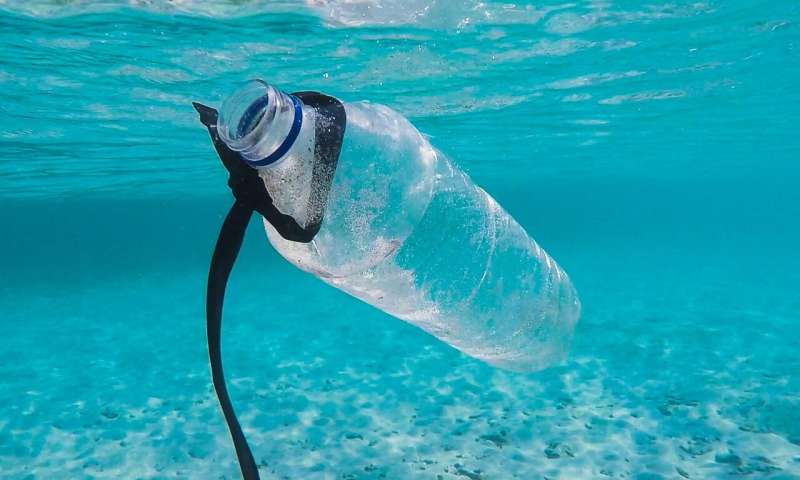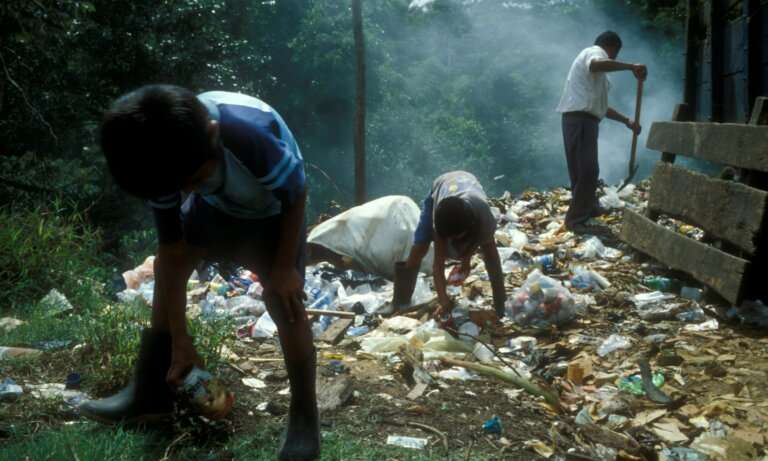Can we stop offshoring our plastic problem?

The UK's new Environment Bill, which returns to the House of Commons for its second reading today (February 26th) has been touted by the government as a landmark piece of legislation that will see Britain "lead the way at home and abroad to deliver global environmental change." For this to be the case, action and enforcement must back up the Bill's encouraging language.
A key element of the Bill, which is designed to replace the UK's environmental obligations under European Union law, is the provision for powers to regulate the export of the UK's plastic waste for processing abroad. This presents the government with the opportunity to deliver on a pledge made in the 2019 Conservative election manifesto, which stated that it would enact a ban on waste exports to non-OECD nations in order to "reduce the environmental impact on the oceans as well as developing countries which do not have the capacity to handle it properly."
Given current efforts to ramp up action on responsible management of plastic waste worldwide – with countries like China and France announcing bold commitments in recent weeks – the Environment Bill is an opportunity to turn promises into progress.
Borders close to 'foreign trash'
To stem the tide of plastic waste exports from wealthier nations, several countries on the receiving end of these shipments are closing their borders to the practice. China's refusal to accept foreign waste resulted in an overwhelming spike in imports to nearby countries such as Vietnam, Thailand and Malaysia, who have since begun taking similar steps to halt the trend.

Low-income countries cannot be expected to bear the brunt of our reluctance to deal with our own waste. Between 400,000 and one million people in the developing world die every year as a result of mismanaged waste, which can block sewage systems when dumped, release toxic chemicals when burned, and provides an ideal breeding ground for disease vectors.
However, official figures show that lower-income countries received less than 40 per cent of UK plastic waste exports in the first nine months of 2019, with the rest sent to OECD nations. A UK export ban to low-income states could mean, therefore, that OECD countries would see a substantial increase in the volume of plastic they receive, especially as Asian countries close their borders to foreign waste. Being an OECD member state is not necessarily a guarantee of sufficient capacity to manage high volumes of waste, so a commitment to banning exports only to 'developing countries' risks shifting the problem elsewhere, rather than solving it.
High-income countries such as the UK must reassess their dependence on offshoring plastic waste, which exposes the mismatch between plastic consumption and domestic recycling capacity. Reduction of waste at source, and greater investment in national recycling infrastructure is needed.
Corporate responsibility at home & abroad

Plastic waste also accumulates in countries with limited waste management infrastructure through the import and sale of plastic goods and packaging. While the Environment Bill makes progress towards implementing the 'polluter pays' principle more rigorously, what is known as "Extended Producer Responsibility' should be developed to become a cross-border obligation: UK-based multinationals who export their products to countries without capacity to deal with the resulting waste should take an active role in managing its disposal responsibly and sustainably, as proposed in the No Time To Waste Report published by Fauna & Flora International and partners last year.
While there are increasing calls to identify alternative materials to limit plastic consumption, without a clear understanding of their environmental impacts there is a danger of replacing one problem with another. Comprehensive steps to reduce the demand for plastic are necessary.
It is therefore encouraging that the legislation supports charges for single-use plastic items to deter their use, as well as a plastic bottle deposit return scheme, and improved litter management and recycling rates throughout the country. The government's planned tax on plastic packaging would be another valuable measure if implemented, though further details have yet to follow its initial 2018 announcement. Similarly, the new Bill requires a biennial review of developments in environmental legislation around the world, and we would therefore expect to see continued revision of the UK's approach to ensure it is compatible with advances in the global drive for environmental progress.

These proposals, if carried out effectively, will play a vital role in tackling an increasingly urgent issue. Worldwide material consumption continues to expand rapidly, hampering progress towards achieving sustainable consumption and production patterns as set out in the UN's Sustainable Development Goals.
It is clear that the challenges presented by the increasing problem of waste management at both national and global scales will not be easy to tackle. They will require binding commitments to more responsible practices in coordination with increased efforts worldwide, effective enforcement, and meaningful progress toward building a circular economy.
Provided by Fauna & Flora International



















